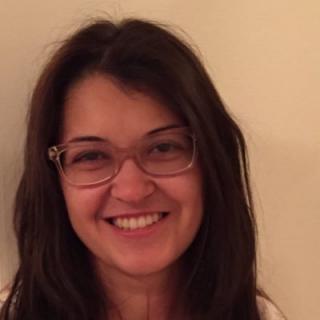Modern systems in production rely on decades of computer science research. Over time, new architectural patterns emerge that enable more resilient and robust systems. In this talk, we'll discuss some of these patterns from systems I've worked on at Google and the related work that provide insights into the motivations behind them.
Track: Modern CS in the Real World
Location: Plymouth - Royale, 6th fl.
Day of week:

Track Host: Aysylu Greenberg
Aysylu Greenberg works at Google on Drive infrastructure. In her spare time, she ponders the design of systems that deal with inaccuracies, enthusiastically reads CS research papers, and paints.
Trackhost Interview
- QCon: What's the focus of your track this year?
Aysylu: The five speakers represent expertise from different areas of computer science that are applied in the industry every day. There's a lot of hype around each of the topics, so I would like the attendees to come in and get more information about what's going on, what areas they should be paying attention to, what kinds of techniques they should learn about, because they will be hearing more about them in the coming years.
- QCon: So what do you want a developer who comes to your track to walk away with?
Aysylu: I think there are three things that I'd like the attendees to get out of this track:
- QCon: If I'm a software developer and I come to you and ask: "What is the one thing that you think I should focus on today. To position myself for what comes next?".
Aysylu: I think one of the important things is to keep an eye on things that help with our mid- to long-term development and that is knowing what ideas are being generated and discussed and acquiring a decent understanding of them. Every idea that will be presented in the talks on my track is something that will be discussed more in the coming years. And so my advice would be for the attendees to expose themselves as much as possible to what's happening now in the industry and academia and to actively think about how they can apply their knowledge in one area to other problem domains and synthesize solutions for their own systems. Cross-domain knowledge is becoming more valuable, so having the mid- to long-term outlook into the developments and types of problems that are being solved to utilize knowledge in one area to solve problems in another will become more relevant as time goes by.
Modern Distributed Optimization
We often want to find the best settings for our systems, whether it’s configuring the best JVM parameters, optimizing user workflows, or selecting the right configuration for a machine learning algorithm. Black-box optimization techniques that can find good (hopefully optimal!) parameters have been investigated for the last 60 years, but over the last 20 years there’s been significant attention placed on creating versions that can take advantage of parallel compute.
In this talk, we’ll cover the types of real-world problems that are being solved with these techniques. We’ll do a deep dive into a few of the most popular ones, such as Distributed Nelder-Mead and Bayesian Optimization, and discuss their trade-offs. You should walk away with an understanding of what’s actually going on inside of these black-boxes and a good idea of how you can start applying them to your problems today.
Homoiconicity: It Is What It Is
What do Lisp, Prolog, Tcl, machine code, and XSLT have in common? It's a computer science-y word that sounds cool and lends an academic sheen to your programming language, but do you know what "homoiconicity" really means? Maybe you saw some Scheme in college, but S-expressions aren't just about macros. This talk will demonstrate the power that comes from having the same data representation at all layers: programming language, specification, database, inter-process communication, and user interface. As examples, we will look at Clojure, a modern dynamic programming language in the Lisp family, and Datomic, a transactional, distributed database.
What Came First: The Ordering of Events in Systems
Your favorite distributed system and the concurrent program you wrote last week are built on the same foundational principle for ordering events across the system. This talk will explore the beautifully simple happens-before principle that lies behind these complex systems. We will delve into how happens-before is tracked in a distributed database like Riak, and how it’s implicitly maintained by the concurrency primitives provided in languages like Go. We will touch upon other sophisticated uses of happens-before like consensus protocols and data race detection.
Real World Virtual Reality
Virtual reality has been all the rage of late. With a myriad new devices and everyone talking about it, it’s easy to get lost in the hype cycle… but how much has VR made it into the real world? Having reached more than a million students, Google Expeditions is at the forefront of bringing VR to the classroom. Though education presents a world of possibilities, it also brings a plethora of challenges. This talk will explore Google Expeditions as a case study in building meaningful VR applications. Specifically, we will discuss both the role of zero configuration networking in the classroom and how the algorithms of Google's JUMP technologically hallucinate three dimensional photographs of the world around us.
Machine Learning from Theory to Practice
With recent advances in computational power, machine learning is positioned to change the way we interact with the world around us. Likewise, a surge of well-maintained machine learning libraries has made it possible for engineers to use machine learning models with minimal background. However, many find that using machine learning responsibly in your company can be harder than it seems. Here, we will discuss some of the challenges that can arise when working with data.